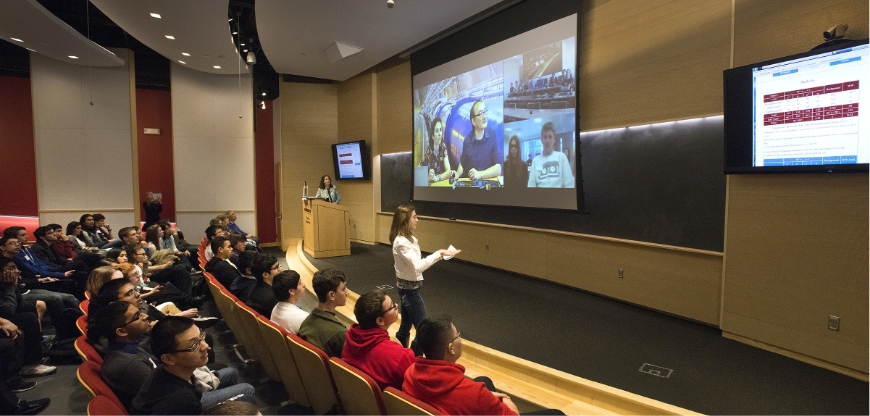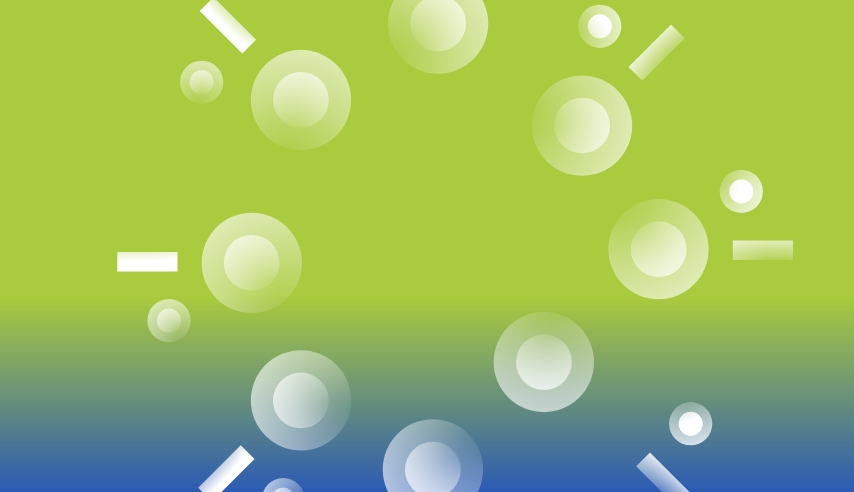About

The Collaboration
A network of scientists, science educators and communication specialists working across the globe in science education and public engagement for particle physics. Particle physics is the science of matter, energy, space and time. IPPOG brings new discoveries in this exciting field to young people and conveys to the public that the beauty of nature is indeed becoming understandable from the interactions of its most fundamental parts - the elementary particles.
The IPPOG experts come from prominent national or international professional physics centres, universities, societies and laboratories engaged in particle physics research, and from major particle physics experiments. The diversity of their cultural and educational backgrounds brings a large and important variety of skills to the table, which permit for the effective development of novel outreach activities with maximal impact. IPPOG members represent links to several national-level science networks. This constitutes IPPOG’s global network of laboratories, institutions, organizations and individuals all passionate about particle physics. The expertise of IPPOG’s members spans all aspects of collider and non-collider research, including astroparticle physics and accelerator and detector technology.
For its members, IPPOG is a forum for the exchange of information and best practices with colleagues from around the world, a brainstorming platform. It is also a platform of resources, ideas, inspiration, training and skill-building, providing access to programmes for students, teachers and the public. IPPOG increases international exposure and enables centralised and coordinated efforts through partnerships.
For particle physics and the scientific community, IPPOG represents a key partner for promoting and enabling their scientific mission and activities. It is a platform for engaging on a global level, building partnerships within the community and across communities, and for supporting the broader scientific objectives of particle physics and its role in society. For the worldwide particle physics community, IPPOG is a strong partner for engaging society in diverse ways adapted to the target audiences.
Herein lies the role of IPPOG as a pillar of particle physics: IPPOG is capable of reaching out and engaging large international audiences with particle physics activities in a manner that fosters long-term, sustainable support for fundamental scientific research around the world.
History
EPOG
The European Particle Physics Outreach Group (EPPOG) was formed in 1997 under the joint auspices of the European Committee for Future Accelerators (ECFA) and the High Energy Particle Physics Board of the European Physical Society (EPS-HEPP). During the first EPPOG meeting, held in September, 1997, then CERN Director General Chris Llewellyn Smith stated “the particle physics community has a moral obligation to inform the public on its activities. To do this well, experiences must be shared among countries in view of the need to optimize the use of resources”. The motivation for the formation of the group was thus to create a mechanism to define common priorities and collective decision-making regarding education and outreach efforts. During the first meeting, the primary tasks of EPPOG were defined to include: providing a forum for the exchange of information on outreach activities, taking an inventory of materials currently in use for particle physics outreach, pooling resources, identifying media contacts and identifying other possible collaborating partners to strengthen efforts. The original group comprised one delegate from each CERN member state, one additional CERN and DESY member, a Chair and a Deputy Chair appointed by ECFA and EPS-HEPP, and associate members from within the community, currently active in public outreach and communication. The group agreed to meet twice a year, to exchange ideas and best practices in particle physics education and outreach, to define common activities, and to develop and share material supporting their activities. Current and former chairs are listed in here.
International Masterclasses
To celebrate the International Year of Physics in 2005, EPOG started in late 2003 to prepare a website and organisation to launch the first international masterclasses – a hands-on particle physics programme, using software packages based on events visualization software from DELPHI and OPAL, translated into 14 languages. In the first edition in 2005, about 3000 students participated in 58 institutes from 18 countries during two weeks in March, by being “Scientist for a day,” using either the “Hands-on CERN” or “Keyhole to the birth of time” packages, based on DELPHI real data, or the “Identifying particles'' package, based on OPAL real data, then connecting at the end of the day in a video-conference supported by CERN. The feedback of the students was very good (Michael Kobel, CERN Courier, October 2005), and this activity was improved and organized every year since, becoming IPPOG’s flagship programme for tens of thousands of students from around the world.
From EPOG to IPPOG
As data-taking ramped up for the Large Hadron Collider (LHC) experiments, so did EPOG’s interest in using real data from the LHC experiments in the International Masterclasses. This also raised the interest to include the participation of countries involved in the LHC collaborations, but not member states to CERN. The LHC experiments had become members of EPOG, but not the countries. In a presentation during the October, 2010 EPOG meeting, Chairs David Barney and Michael Kobel noted that there were more than “40 non-member and observer states of CERN [participating in LHC experiments], some of which [had] well-advanced outreach programs.” In addition, other laboratories, such as KEK in Japan and FNAL in the USA, were considered as potential new contributors to the group. Following agreement by the EPOG members and subsequent approval by ECFA in November, 2010, EPOG evolved to IPPOG, the International Particle Physics Outreach Group.
The first new member of IPPOG was the USA in 2012. Members joining in the following few years included Israel, Ireland, Slovenia, Australia and South Africa. These new members were each asked to make a presentation during an IPPOG meeting on their current activities in education and outreach and on their planned contributions to the IPPOG programme in future years. Current members then voted on their membership. Although only a majority of votes in favour were required, all of these new members were accepted by complete consensus. The group began to grow in earnest and the breadth and reach of activities expanded every year.
From a Group of Experts to a Scientific Collaboration
With expansion came an increased need for core infrastructure and official recognition of IPPOG worldwide activities. Resources to support the primary programmes, such as International Masterclasses, had been generously provided by CERN, through an agreement between the Director General and the University of Dresden, and by the University of Notre Dame, through an agreement with QuarkNet in the USA. These agreements, however, needed periodic renewal and were not based on official recognition of IPPOG as a collaboration. Furthermore, additional funds were needed to maintain and develop core infrastructure, such as the web pages and resource database. CERN committed a fraction of an employee’s time each year to provide secretarial duties, but more help was needed, due to the growth of the programmes, both in complexity and geographical spread. With these issues in mind, IPPOG chairs Hans Peter Beck and Marjorie Bardeen began discussions with the group’s members, the CERN Director General, CERN Council and ECFA on how best to pursue becoming an official international collaboration.
By 2015, with the help of the CERN legal office, an official Memorandum of Understanding (MoU) was drafted, defining the structure, terms of membership and operation of the collaboration. The MoU, which became valid in December, 2016, with the 10th new member signature, specifies an agreement between IPPOG and the national bodies representing the member countries, collaborations and international laboratories. A national body is a scientific laboratory, institution or ministry, that has the right to participate on behalf of all particle physics bodies in the country. In brief, the MoU asks the member to recognise and support particle physics outreach and education in that country, to actively contribute to the IPPOG programmes, to appoint a representative to attend collaboration meetings and contributes a small monetary contribution to help support the core infrastructure. An international collaboration agrees to recognise and support efforts in education and outreach within the collaboration, provides access to data, tools and expertise for IPPOG activities, and also appoints an official representative. No funds are requested from collaborations, in order to avoid double counting by nations that are members of both the collaboration and IPPOG. Finally, international laboratories are negotiated on a case-by-case basis, with agreements written up in the form of addenda to the MoU. CERN is currently the only one. In 2020, IPPOG added the possibility of Associate Membership for national bodies of existing member countries. These bodies play an active role in collaboration decision-making and sign important commitments to support global outreach. DESY, a long-standing past member and GSI became the first Associate Members that year.
By Spring 2021, all of the original member countries had signed the IPPOG MoU. IPPOG has thus evolved into an increasingly sustainable international collaboration with a growing membership and a modest budget for the development of the core infrastructure needed to support major worldwide programmes in education and outreach.

Members & People
Our International Collaboration is growing. Our members may have different collaboration specifications: IPPOG Members and Associate Members (both part of the Collaboration Board).
There is also a network of collaborations with Partners & Contributors as well as the IPPOG Forum which comprises the Collaboration Board, Coordination Team and other experts engaged in IPPOG activities.

